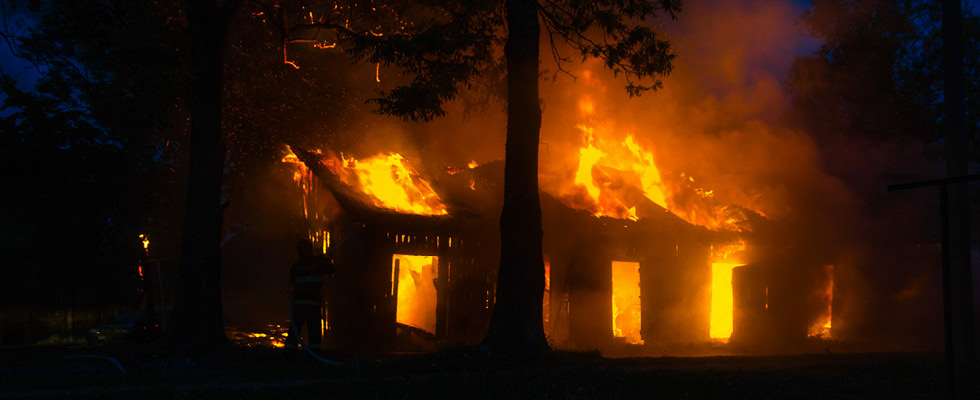
Editor’s Note: Due to the following case pertaining to an individual, rather than a company, BPN has made the decision to omit the company name, as it is not directly involved with the case.
On Oct. 21, a Loudoun County, Virginia, grand jury issued a criminal indictment charging a propane service technician with involuntary manslaughter. The criminal charges arise from a tragic residential explosion in February that killed a volunteer firefighter, injured 11 others and caused an estimated $2.5 million in property damages. At this point, many details surrounding the incident are unclear, beyond the allegations outlined in the indictment.
According to the indictment, Kelley Woods, a resident of Sterling, Virginia, was a propane customer of a local cooperative. She had a 500-gallon underground tank that fueled a pool heater for the swimming pool on her property. Apparently, a problem with the tank was discovered back in 2021, although the exact nature of the problem is unclear.
Woods was not actively using the pool heater in 2021, and so no action was taken to attempt to repair the underground tank. That changed in February, when Woods decided to put the home on the market for sale. She wanted the problem with the underground tank fixed, and so she called her propane provider. She was told the tank would need to be filled in order to diagnose and fix the problem. A service call was scheduled for Feb. 22.
However, on Feb. 16, a delivery technician for the company appeared and began to fill the tank at the Woods residence. At this point, according to the indictment, Woods smelled the strong odor of propane outside near her front door. There is no mention of anyone smelling propane inside the house.
The doorbell camera at the residence then recorded an interaction between Woods and the delivery technician. The technician allegedly told Woods that the tank would need to be dug up and fixed due to its age. It is unclear what investigation the technician did to determine this, but in any event, not long after this, Roger Bentley, another service technician for the company, arrived at the scene to assess the situation, according to court records.
After evaluating the scene, the indictment states that Bentley made the decision to let all of the propane leak out of the tank before attempting to undertake any repairs. Allegedly, he told Woods to simply let the propane “seep out of the ground and be on [its] merry way.” If this is true, he must have been assuming there was no path for the leaking propane to migrate into the house, and that instead it would simply “seep out of the ground” and harmlessly dissipate in the atmosphere. It appears that Bentley then left and returned to the company office.
Hours later, firefighters responded to a gas odor report at the Woods residence. They called the propane company and spoke to Bentley. He told them the underground tank was in fact leaking, but he did not know whether there was any way to siphon the propane out of the tank, in light of its age and condition. The firefighters asked him whether the tank could be excavated and removed from the property. Bentley responded that this could be done, but that the company was already scheduled to have a technician return 10 days later to fix the issue with the tank. That apparently concluded the firefighters’ inquiry.
At 8:25 p.m., the Woods house exploded. Apparently, leaking propane from the tank did migrate underground into the residence. Overall, 11 people were injured by the blast. Sterling volunteer firefighter Trevor Brown was killed. Property damage from the explosion extended to at least six nearby residences, and three of them were deemed to be unsafe for people to continue living inside. Total property damage was estimated at $2.5 million.
The Oct. 21 indictment of Bentley includes charges of involuntary manslaughter, failure to maintain records of an unauthorized release of hazardous materials and failure to control or mitigate the unauthorized discharge of hazardous materials.
It appears that involuntary manslaughter is the most serious of these charges, carrying a minimum sentence of one year in jail and a maximum of 10 years. In order to convict Bentley on this charge, the prosecution must demonstrate that, beyond a reasonable doubt, his actions were “reckless or wanton,” and that they show a “callous disregard of human life and of the probable consequences of his act.” Here is the exact language of the jury instruction on involuntary manslaughter that will be read to the jury in the event that Bentley’s case goes to trial:
“The gist of involuntary manslaughter is criminal negligence. It must be shown that the negligence of the defendant was gross or culpable negligence. Gross or culpable negligence is that which indicates a callous disregard of human life and of the probable consequences of his act. Criminal liability cannot be predicated upon every act carelessly performed merely because such carelessness results in the death of another.
“In order for criminal liability to result from negligence, it must necessarily be reckless or wanton and of such a character as to show disregard of the safety of others under circumstances likely to cause injury or death. Unless you believe from the evidence beyond a reasonable doubt that the defendant was guilty of negligence so culpable or gross as to indicate a callous disregard of human life and of the probable consequences of his act, you cannot find him guilty of involuntary manslaughter.”
This prosecution is, to say the least, a highly unusual event in the propane industry, which prides itself on the safe delivery of propane to millions of customers across the United States. In almost 40 years of defending propane distributors in liability lawsuits across the country, I have never seen or heard of a criminal prosecution of a service or delivery technician arising from a propane leak or explosion.
And it is important to remember that the allegations of the indictment here are simply that — allegations that may or may not be proven true. They present one side of the story, and Bentley will have the full opportunity to present a defense that may well include facts not mentioned in the indictment.


